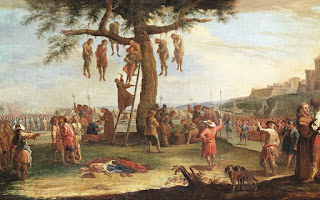Next, we are going to practice a note-taking technique by outlining Chapter 9: Lesson 3 (The Rise of Napoleon and the Napoleonic Wars). We will start with the section title, add the main header title, and begin adding the sub-header titles. We will leave a space for "bullet points" or "numbers" for each paragraph in that section. For example:
 The Rise of Napoleon and the Napoleonic Wars
The Rise of Napoleon and the Napoleonic Wars- The Rise of Napolean
- Early Life
- Military Successes
- Consul and Emperor
Obviously you would continue through the whole section (or chapter in some books).
Next you can summarize the paragraph in one brief sentence. Often you can simply use the first sentence of the paragraph (the topic sentence) -- and even break it down into a simpler form.
Chapter 9: Lesson 4:
- #3: How did Napoleon lose his empire?
- #4: Why did the turmoil of the French-revolutionary years result in a conservative European reaction?
- #5: What happened to revolutionary ideas after the French Revolution was over?
Write a short essay describing the rise and fall of Napoleon, using your book as your reference. Remember to focus on your topic sentences to support your paragraphs.
History Channel: Napoleon Bonaparte
History Channel: Napoleon Bonaparte
Napoleon: Gone Baby Gone (History Teachers)
Mini Bio: Napoleon
What if Napoleon Never Rose to Power?



